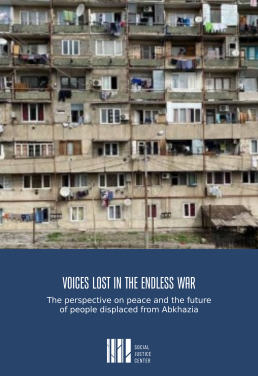საერთო ცხელი ხაზი +995 577 07 05 63


As a result of the political crises that began in Georgia in the 20th century, the country went through multiple wars as well as internal political and military disputes within the country. The thirty-year post-independence history has been defined by contradictory political and social experiences. These experiences have had serious repercussions on the systemic, micro-social, and individual levels.
Up until this day, one of the unexplored episodes in the nation's history is the war in Abkhazia, which is believed to have claimed over 13,000 lives, left over 18,000 injured or crippled, up to 2,000 persons reported missing, and 300,000 people with the status of internally displaced persons (IDPs).
With the passage of time, the impossibility of a quick resolution of the conflict and the constantly changing political and geopolitical context once again puts the need to review peace initiatives and search for new opportunities. It is important that these initiatives be created with the participation of conflict-affected communities, including internally displaced persons. In this context, theories of peace building focus mainly on the participation of the displaced community and the establishment of forums for dialogue on matters of justice, forgiveness, truth, and peace.
Involvement of the displaced community is not sufficiently supported neither in Georgian nor in Georgian-Abkhazian discussions. Moreover, expectations about them are limited in advance. IDPs, as a traumatized society, are often considered only in terms of socio-economic and emotional dimensions, and their potentials for the peaceful resolution of the conflict is unexplored. Although various public surveys reveal that a large part of the IDPs show an open readiness for dialogue and a peaceful resolution of the conflict, the voices of the displaced community is practically not represented in the peace policy. A radicalized and exclusionist discourse field further complicates the representation of these perspectives.
The purpose of the present study is to explore the views and perspectives of the internally displaced population from Abkhazia in relation to peace and conflict resolution.
The objectives of the study are to analyze the perceptions of the internally displaced population from Abkhazia on issues related to the past, conflict, and peace. The broad objective of the research is to generate critical and evidence-based knowledge related to conflict and peace issues and to present alternative perspectives on the structural causes of conflicts and ways to achieve peace.
The website accessibility instruction